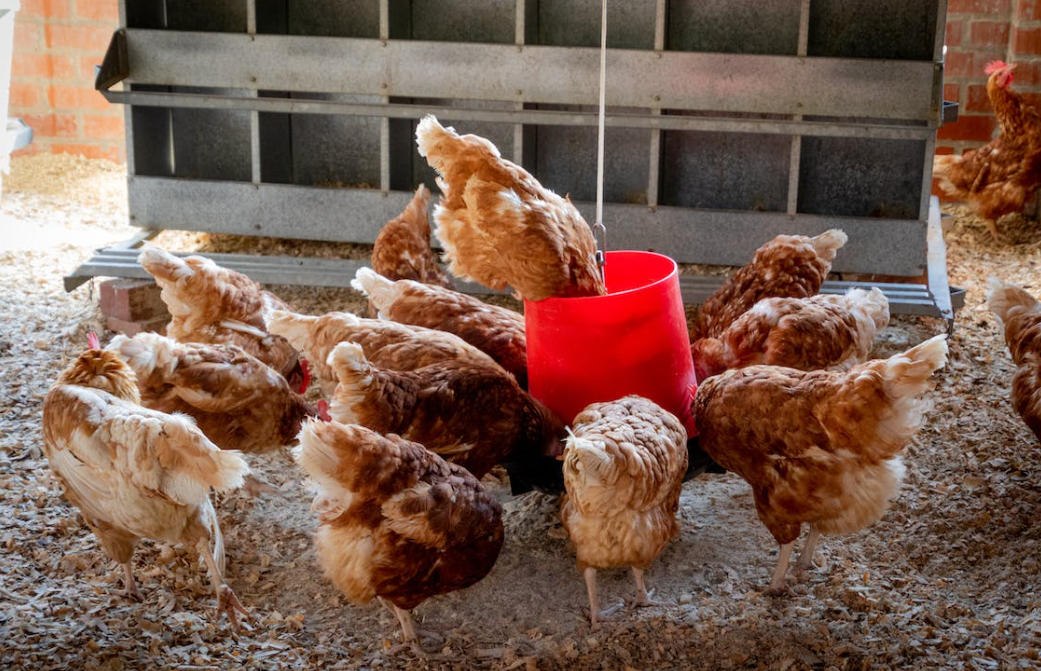The Minister for Agriculture, Food and the Marine, Charlie McConalogue has ordered that from next Monday (November 7) all poultry and captive birds must be housed indoors.
The confinement order has been issued by the minister “as a precautionary measure” because of the risk of avian influenza (bird flu).
Teagasc poultry advisor Rebecca Tierney has outlined to Agriland what bird flu is and what action poultry producers and captive bird owners now need to take.
What is bird flu?
Avian influenza or ‘bird flu’ is a viral disease that primarily affects poultry and wild fowl. It is caused by a Type A influenza virus.
There are two types of avian influenza virus. These are called low pathogenic (LPAI) and highly pathogenic (HPAI), depending on the severity of the disease that they cause in birds.
All types of avian influenza, regardless of subtype or pathogenicity, must be reported to the Department of Agriculture, Food and the Marine (DAFM).
Why are restrictions being introduced?
A highly pathogenic avian influenza H5N1 (bird flu) is currently circulating on the island of Ireland, predominately in wild birds.
On October 26, a highly pathogenic avian influenza (HPAI) subtype H5N1 was confirmed in a mute swan found in Co. Cavan.
This is the first case of HPAI H5N1 found in a wild bird in an inland area since April 2022. However, there have been cases of HPAI H5N1 in wild birds confined to coastal areas.
From Monday (November 7), the avian influenza (precautionary confinement of birds) regulations 2022 will come into effect.
This means all poultry producers, including captive bird owners, are required to keep all birds indoors, which does not permit wild bird or other animals access.
It is vital to note this housing measure is not an alternative biosecurity.
What are the signs and symptoms in birds?
- Death/high mortalities in a flock;
- Depression/lethargy;
- Loss of appetite;
- Respiratory distress such as gaping beak, coughing, sneezing, gurgling, rattling;
- Swelling and blue discolouration of combs, wattles, neck and throat;
- Diarrhoea;
- Reduced egg production or no egg production.
What should poultry farmers do next?
It is crucial that all poultry producers, including captive bird owners, maintain the strictest biosecurity measures on their units.
Flock owners must maintain the strictest of biosecurity measures to prevent the spread of the disease.
All flock owners must be vigilant for any signs of disease in their flock and contact their local department veterinary office immediately.
What biosecurity measures are recommended?
Poultry producers are legally required to maintain best practice biosecurity measures and here are four key areas to focus on:
Staff and visitors
It is widely understood that pathogens can be transferred via humans, i.e., humans can carry disease-causing agents on their body (hair/skin/under fingernails), clothes and/or shoes.
Therefore, it is crucial that the number of people interacting/entering the poultry unit is kept to a minimum.
- Only essential visitors should be permitted access;
- A visitor log must be maintained;
- All visitors must follow the biosecurity plan on the farm;
- Visitors must wear the correct personal protective equipment (PPE) – boot covers, disposable overalls, gloves, face mask, and hair net. This PPE should be disposed of on site;
- Foot dips must be used.
Buildings
- All buildings should be bird and rodent proof. All doors must be kept closed;
- External hard surfaces should be cleaned and disinfected regularly, (e.g., concrete aprons to the house front).
Equipment
If at all possible, do not share equipment between houses or sites. Each house should have designated equipment.
Colour coordination of equipment will help prevent equipment being transferred between houses.
If equipment is to be shared between houses, it must be thoroughly disinfected before and after each use.
Vehicles
It is important to plan the entry of vehicles to the site at the planning stage. The number of vehicles entering the site should be kept to a minimum.
- Parking spaces should be provided at the gate where it is safe to do so;
- Wheel sprays / vehicle disinfection should be provided;
- The dead lorry should not enter the site, the bins should be brought to the gate.
Does bird flu pose a risk?
The advice from the Department of Agrioculture, Food and the Marine (DAFM) is that people do not pick up or touch sick, dead, or dying birds and keep their pets away from them.
The disease poses no food safety risk for consumers. Properly cooked poultry and poultry products, including eggs are safe to eat.
